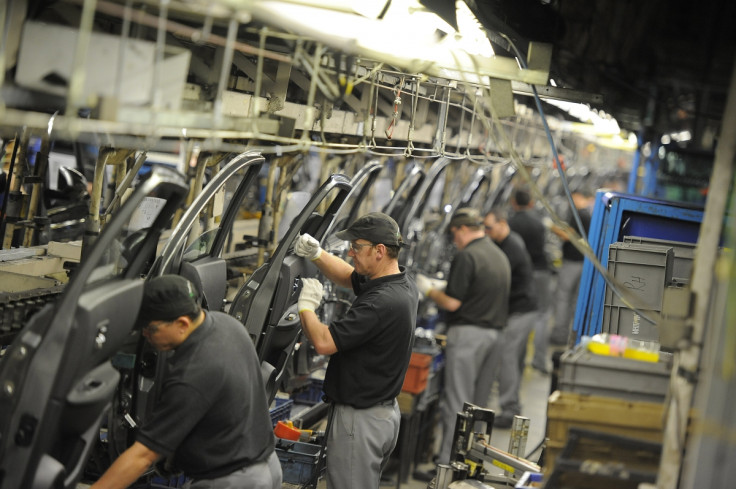UK industrial production plunges over 1% in October amid sharp slowdown across sectors
ONS figures show both industrial and manufacturing output suffered a sharp slowdown in October.

Britain's industrial production suffered an unexpected decline in October, with output falling across the majority of sectors, official data released on Wednesday (7 December) showed.
According to the Office for National Statistics (ONS), manufacturing production fell 0.9% in October, compared to the month before, compared with the 0.6% gain recorded in the previous month and missing analysts' expectations for a 0.2% increase.
The decline encompassed most sectors, the report added, indicating that the pharmaceutical sector recorded the biggest decline as output fell 3.6%.
On a year-on-year basis, production fell 0.4% in October, compared with the 0.2% increase recorded in the previous month, and short of analysts' expectations for a 0.7% increase.
The largest downward contribution came again from pharmaceuticals, which fell by 9.4%, although that was partly offset by a 10.4% increase from other manufacturing sectors.
Meanwhile, overall industrial production – a broader gauge of the industry – tumbled 1.3 % in October, compared with a 0.4% decline recorded in September and falling short of analysts' expectations for growth to increase to 0.2%.
The ONS attributed the decline to a slowdown in the mining and quarrying industry and a 10.8% drop in the oil and gas sector.
On an annual basis, meanwhile, industrial production fell 1.1% from the corresponding period in the previous year, compared with a 0.3% gain in September and forecast for a 0.5% increase. The mining and quarrying sector was again the largest driver of the decline, as output fell by 8.7%, mainly due to maintenance in the oil and gas industry.
"The UK manufacturing data came much weaker than expectations and this presents a major threat for the economy," said Naeem Aslam, chief market analyst at Think Markets UK.
"So far investors have been of the mind frame that the country is overcoming its major economic headwinds but today's number clearly shows how much off beat they are with respect to reality."
According to a survey released last week by IHS Markit Economics, Britain's manufacturing sector remained solid in November, despite the impact of the weaker pound.
Markit's Purchasing Managers' Index (PMI) fell from 54.3 in October to 53.4 in November, compared with analysts' expectations for an unchanged reading, but remained well above its long-run average of 51.5. While the figure was short of forecast and was also lower than the 27-month high reached in September, it marked the fourth consecutive month of expansion in the sector.
However, the impact of the weak pound continued to be felt by in the sector, as average purchase prices rose at one of the fastest rates on record and close to October's six-year high.
© Copyright IBTimes 2025. All rights reserved.






















